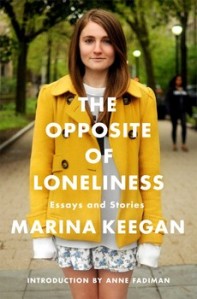Click on the title above to view on the CTE Central Blog website.
* * *
When we lean toward leaders in any field, it’s often because they are able to express in a logical and persuasive way what we’ve been thinking all along. And what we’ve been hoping for.
Two women who were leaders in education died recently. One filled a library with her articles, speeches, and books. The other, left one slim volume, published posthumously. But both touched us in important ways.
Maxine Greene died last month at the age of 96. She worked tirelessly to convince educators that the arts are essential—she called it “aesthetics education”—and that students should be taught the Thoreauvian concept of what she called “wide-awakeness.”
“Without the ability to think about yourself, to reflect on your life,” Greene said, “there’s really no awareness, no consciousness. Consciousness doesn’t come automatically; it comes through being alive, awake, curious, and often furious.”
“We who are teachers would have to accommodate ourselves to lives as clerks or functionaries if we did not have in mind a quest for a better state of things for those we teach and for the world we all share.” (From Releasing the Imagination)
Two years ago Marina Keegan, 22, died in a car accident. Five days before she had graduated from Yale magna cum laude. She was a writer of essays, blogs, plays, and short stories that are so young and current and well written—try “Cold Pastoral”—they take your breath away. So good, in fact, she had just landed a job at the New Yorker. How many levels of tragedy can we bear?
While attending Yale she wrote an essay titled “Even Artichokes Have Doubts” for the Yale Daily News. In it she laments the fact that 25% of Yale graduates become “consultants” and “financial advisers.” This was not their goal originally. “In a place as diverse and disparate as Yale, it’s remarkable that such a large percentage of people are doing anything the same.”
In an editorial called “The Opposite of Loneliness” she continues her thoughts on a Yale education. “When we came to Yale, there was this sense of possibility. This immense and indefinable potential energy – and it’s easy to feel like that’s slipped away. What we have to remember is that we can still do anything. We can change our minds. We can start over…. We can’t, we MUST not lose this sense of possibility because in the end, it’s all we have.”
Keegan believed a career should be about “producing something, or helping someone, or engaging in something we’re explicitly passionate about.” Greene believed “that students could be taught and encouraged to engage the world not just as it is but as it might otherwise be,” and that “the arts encourage a kind of thinking that best serves humankind.”
Both women lived full lives. They were alive, awake, curious, and furious.
In the CTE classroom, you as teachers consider many of the elements they espoused: mindfulness, teaching the whole child, relevancy, hands-on learning, community service, apprenticeships/internships, and entrepreneurship. There, you are the leader. You hold up a world brimming with opportunities and possibilities and say, “Make it better. WAKE UP!”
To learn more about Maxine Greene, visit the Maxine Green Center Library. And for more on Marina Keegan, pick up her book, The Opposite of Loneliness, recently released.









Very inspirational. It is easy to lose sight of the possibilities.
Thanks Tom
By: Susan Coleman on August 1, 2014
at 12:44 pm